275 MacLaren Street, Ottawa, ON K2P 0L9
Inclusion in Mainstream Spaces, Services and Programs in Vancouver’s Inner City: Comparing the Experiences and Perceptions of Indigenous and non-Indigenous Seniors
Research Start-up Summary and Abstract:
This research grew out of a community identified need. It is by community, for community, and it is meant to become a tool of empowerment for the people while providing key insights into the inner-workings of the communities. We aim to:share all information with everyone interested, deepen an understanding of Elder inclusion in our communities, identify common barriers and desires and put forward community recommendations
Indigenous seniors are a particularly vulnerable and often invisible group in Canada. Their numbers have more than doubled between the years 2001- 2011 and Statistics Canada has found Indigenous seniors represent a higher rate of the low-income population over their non-Indigenous counterparts. Their overall marginal socioeconomic position and shared histories of past trauma, both of which are legacies of the colonial system, are further compounded by their ongoing experiences with structural violence in their communities. In the urban context, they face unique challenges including social isolation, exploitation, health, and economic issues (Beatty & Berdahl, 2011). Looking at Vancouver’s inner city, it is recognized that it is a geographic space with significant meaning to Indigenous people as it is located on the traditional territory of the Coast Salish People. Unfortunately, many believe this important history and sense of connection has been largely undermined by local planning and development processes that have tended to displace low-income residents, including Indigenous community members who have long called the neighbourhood home (Schatz, 2010).
“Through gentrification, Native spaces in the city are now being treated as urbs nullius –urban space void of Indigenous sovereign presence” – Glen Coulthard, Dene Scholar
The City of Vancouver recently completed a Downtown Eastside (DTES) local area plan which acknowledges the need for more affordable and culturally relevant community programming for Chinese and Aboriginal seniors and better placemaking opportunities’ for Aboriginal peoples. This research seeks to generate knowledge that can inform place-based inclusion strategies, aiming to engage and support the diversity amongst local seniors.